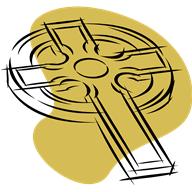Bible Study Begins Study of First Gospel: Mark
By Rev. Dr. Fritz Ritsch
Did you know that most scholars consider Mark the earliest gospel that was written, and that Matthew, Luke, and even parts of John appear to use Mark to organize their own gospels? Mark has no birth narratives, unlike Matthew and Luke; and strikingly, most scholars agree that the resurrection story in Mark was tacked on by later editors. In this gospel, Jesus seems at pains to keep his identity as The Son of God secret. Why is that?
Despite attempts by some scholars to maintain that other early writings, such as the Gospel of Thomas, are older, most agree that Mark is the earliest existing written account of the life of Jesus. They posit an older written account, called “Q,” a “sayings source” that listed the teachings of Jesus, that Mark may have been unfamiliar with, but which was available to Luke and to Matthew; but nobody has ever found Q. Mark remains our earliest report of Jesus and His ministry. Apparently it was considered so authoritative that other gospel writers used it to frame their gospels.
Jesus as we meet Him in Mark is raw, edgy, and passionate. He is a distinctly Jewish messiah. His suffering is the key to His identity.
The noon Wednesday Bible study is beginning a study of the Gospel of Mark. When the Bible study began over 9 years ago, we started there, and it seems like it’s a good time to return. Only a couple of our original students are still there, but the class averages 10-15 every week, running the gamut in age and length of membership. We also have regular visitors, including a member of First Pres! The discussion is always vibrant and challenging. The sense of fellowship in our group is very strong; we always check in on and pray for one another. Most have been there several years, but we always welcome new folks and they seem to acclimate pretty quickly.
The goal of the Wednesday Bible study is, first of all, to practice “the priesthood of all believers,” a central tenet of the Reformation. I want to make you comfortable with interpreting the Bible yourself. I also want to make you familiar with the biblical interpretation tools that I’ve learned and with what we can learn from the most recent scholarship. I’ve never believed that the tools of scholarship, such as historical and literary criticism, translation problems, or the availability of “extra-biblical” materials, should be limited to “the few.” I also don’t believe that exploring the very human process that gave us the Bible is a threat to our faith. Ultimately, it strengthens our faith, because we discover that the Spirit of God can be at work even in the diversity and foibles of human authorship. If anything, it illustrates the honor in which God holds humanity, by using human processes to give us a glimpse—the ultimate glimpse—of the divine.
We hope that you’ll join us this Wednesday in the Eastminster Room, halfway down the first floor hallway of the St. Stephen education building!

